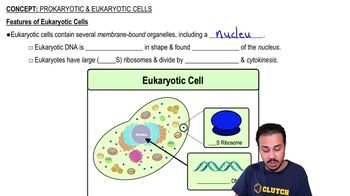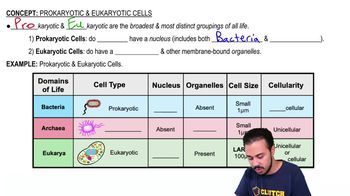Textbook Question
Which of the following is present in a prokaryotic cell?a. mitochondrionb. ribosomec. nuclear enveloped. chloroplast
4308
views
 Verified step by step guidance
Verified step by step guidance



 5:54m
5:54mMaster Prokaryotic & Eukaryotic Cells with a bite sized video explanation from Bruce Bryan
Start learning